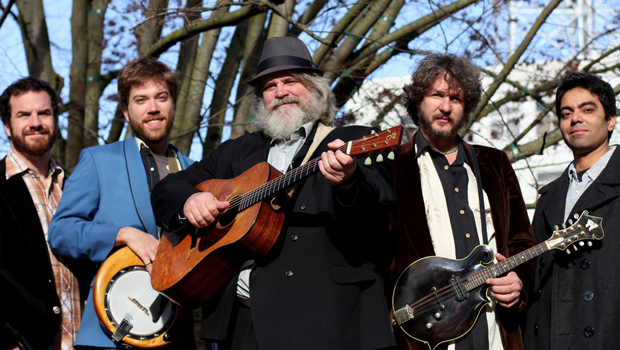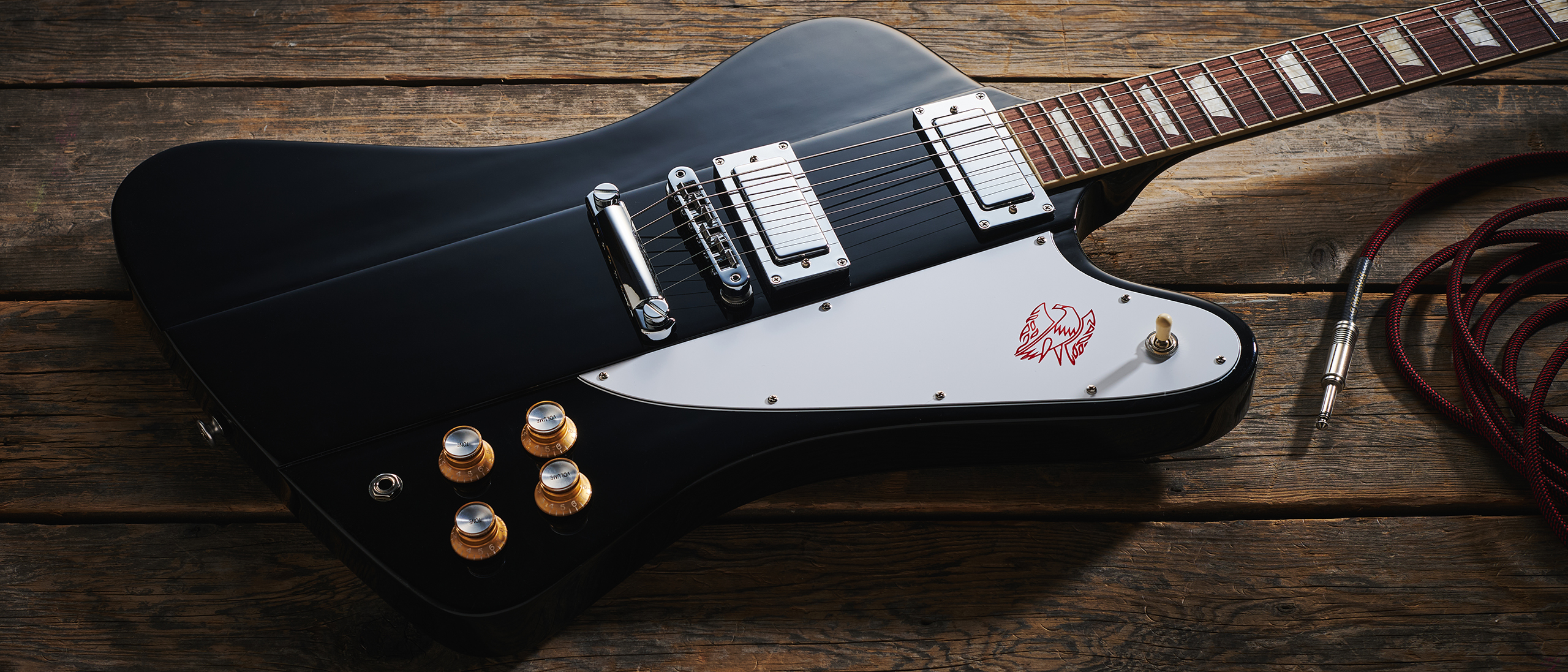
If Boulder jam band the Salmon Heads hadn’t been asked to play a New Year’s Eve gig in Crested Butte, Colorado, in 1989, the past two decades would have been very different for Vince Herman.
As it turned out, some of Herman’s fellow Salmon Heads couldn’t make the show, so he asked his friends in The Left Hand String Band to fill some holes.
You might say the fish was first served on that fateful night, when Leftover Salmon, the sum of Herman and his Left Hand String Band friends, made their live debut at the mountain villa’s El Dorado Café.
“We decided on the name on the way there. Some 20 years later, we’re stuck with it,” said Herman, singer and guitarist for the reunited Leftover Salmon in a recent interview with Guitar World.
The genre-defining band, which describes itself as “Polyethnic Cajun slamgrass” and was one of the first jam bands to make a mark on the national scene, took a break in 2004 after 15 years and four studio albums. The group’s initial run saw them amass a large cult following thanks to their much-celebrated 1993 debut, Bridges to Bert, and star-studded 1999 LP The Nashville Sessions, but the 2002 death of original banjo player Mark Vann eventually took its toll.
“After Mark passed, we kind of limped along for a couple of years and weren’t quite firing on all cylinders,” said Herman of playing without his friend and bandmate.
After playing reunion shows throughout 2008 and 2009, the five-piece (rounded out by mandolinist Drew Emmitt, bassist Greg Garrison, drummer Jose Martinez and new banjo player Andy Thorn) finally got to work on their fifth studio effort. Aquatic Hitchhiker arrived Tuesday, May 22, on LoS Records, the result of what Herman called “comfortable” writing sessions.
Get The Pick Newsletter
All the latest guitar news, interviews, lessons, reviews, deals and more, direct to your inbox!
“The energy was just right,” noted the guitarist, whose full interview with GW is below.
GUITAR WORLD: When did you start playing the guitar?
My brother built me a guitar with rubber bands for strings when I was about 8 years old. The hippie thing was going on, so he dressed me up like one with a wig and vest and stuff. I have a photo of myself at a few years old playing that guitar, so that really resonates with my life.
Did you take guitar lessons growing up?
I did. There was a guy that basically taught accordion most of the time and wasn’t much of a guitar player, but he taught me to read music. That was from the second to sixth grade, and then from there, I pretty much was self-taught. I eventually started teaching the guitar in ninth grade.
How much did you play each day after you started teaching yourself? Do you have any advice for young guitarists doing the same thing?
It was definitely a case of being glued to the guitar. I think the best way to learn the guitar or any other instrument is to have it with you as much as possible, so that would be my advice. For me, it wasn’t so much practicing as it was learning to live and breathe the guitar.
Leftover Salmon formed by accident. Can you talk about how it all came together?
I had been in the Left Hand String band for a couple years before I left and started a new band called the Salmon Heads. The Salmon Heads and the Left Hand String Band were playing a bunch of gigs and a couple of the guys in the Salmon Heads couldn’t make the New Year’s Eve gig in 1989. I asked a couple of guys from Left Hand to come and fill out the band, and we decided on the name on the way there. Some twenty years later, we’re stuck with it.
Leftover Salmon took a hiatus in 2004. What was behind the decision to get the band back together?
We’d been doing reunion shows for a few years and figured it was time to be a real band again or quit doing it altogether. The energy was just right and all the reunion shows we did were great. Having Andy Thorn on the banjo felt really good, so it seemed to make a lot of sense to get Andy in the band. Once that started happening, we really started to feel like we did when we were playing with Mark Vann, who passed away in 2002. After Mark passed, we kind of limped along for a couple of years and weren’t quite firing on all cylinders.
What kind of guitar did you use on Aquatic Hitchhiker?
I’m currently playing an Andrew White guitar, which is a handmade guitar by a buddy of mine from Morgantown, West Virginia. Most of the tracks were recorded with that. I also have a Santa Cruz D/PW that I use onstage. I’m trying to get a pickup for the White, but I’m having trouble with it. A lot of guitars sound great acoustically, but sometimes you can’t get the right pickup in it to play at the rock and roll volume we play at in Leftover Salmon. The top of the guitar has to have a certain thickness to it. You never know until you get a good pickup in and use it in a live situation if the guitar’s going to respond. Ideally, I’d prefer to just play into a microphone.
Was it easy to go back into the studio with the band after eight years?
Yeah, it was pretty wild. With all of the side projects we’ve done over the years, it started to feel a lot more comfortable. I think we all brought more comfort and more ideas and I think our songwriting improved over that time, too.
The new Leftover Salmon album, Aquatic Hitchhiker, is out now via LoS Records. You can buy it now on iTunes. For more about the band, visit their official website.
Photo: Alicia J. Rose
“Elton said, ‘I'd better buy that guitar just to have in my house.’ I played it and said, ‘Yeah, you'd better buy it, so I can play it when I come by’”: One of Davey Johnstone's favorite guitars was once a piece of upscale decor for his superstar bandmate
“Leo said, ‘Here, try this guitar.’ I grabbed it, turned it around, held it upside-down backwards and started playing ukulele chords. He almost fell off his chair laughing”: How Dick Dale made the Stratocaster the ultimate surf-rock weapon










